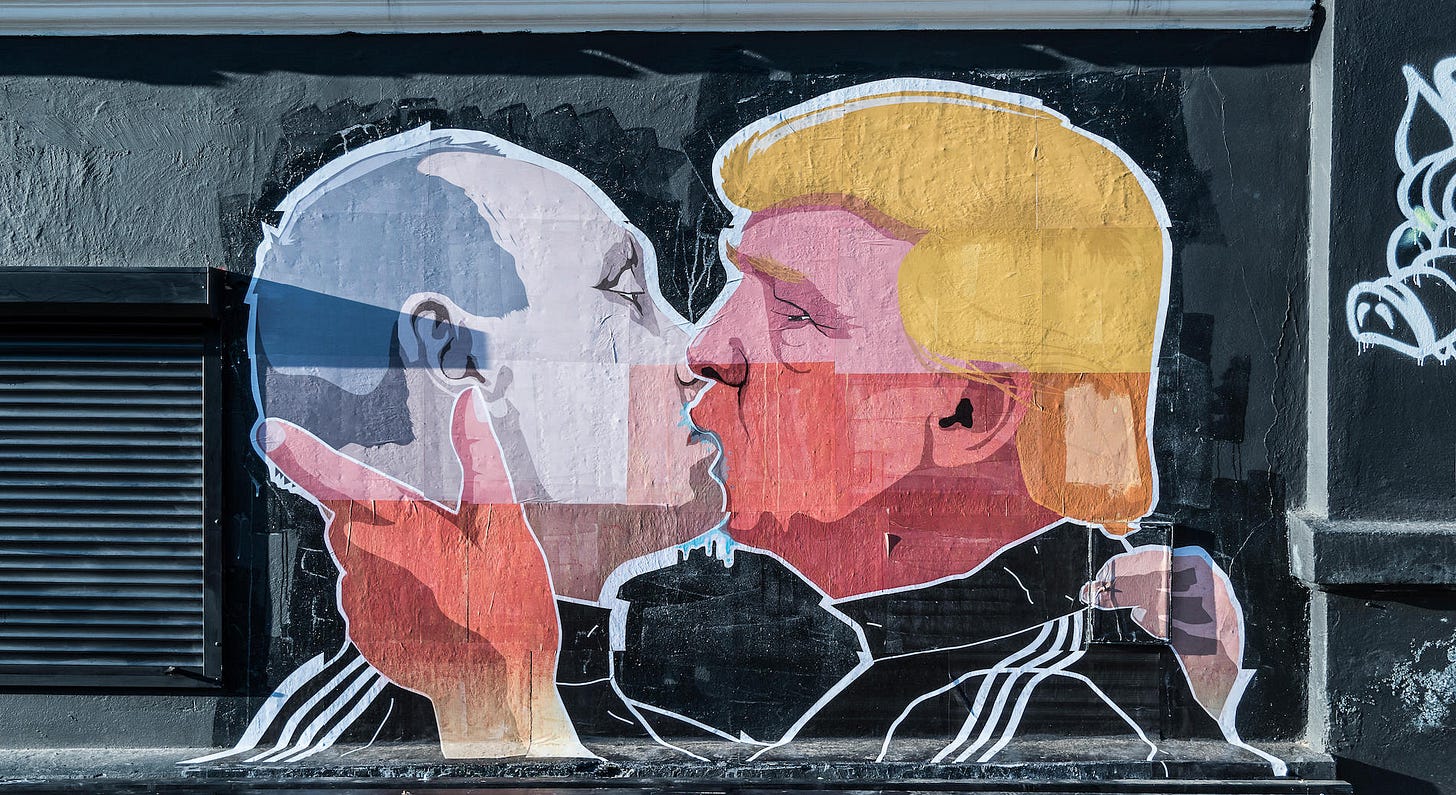How Trump's Foreign Influence-Peddlers Were Let Off the Hook
Attempts to stop foreign interference in US democracy are being held back, reports Matt Bernardini
The US Department of Justice’s attempts to hold accountable the people who incited an insurrection, and interfered in US democracy, were hindered in the last two months when several of former President Donald Trump’s closest associates were let off the hook.
Since 2016, attempts to crack down on foreign influence has undergone something of a revival, with a decades-old law gaining new attention.
The Foreign Agents Registration Act (FARA) requires persons representing foreign interests to publicly disclose their activities and any payments received. It was seen as relatively toothless since its enactment in 1938. From 1966 to 2015, the DOJ brought just seven criminal FARA cases, obtaining convictions in just three.
However, the law saw renewed interest with the appointment of Special Counsel Robert Mueller in 2017. Former Trump campaign officials Paul Manafort and Rick Gates pleaded guilty in 2018 to failing to register as agents of the Ukrainian Government.
Last December, the Justice Department put out a request for comments on ways to modernize FARA laws. It also beefed up its FARA department, potentially signalling more enforcement may be coming. However, the department will have to learn from several recent high-profile cases that did not go their way.
Perhaps the most prominent person accused of foreign influence peddling is Trump’s personal attorney Rudy Giuliani. In April 2021, FBI agents seized phones and computers from his office in New York. The government was investigating whether Giuliani had violated FARA by lobbying officials to fire Marie Yovanovitch, the then US ambassador to Ukraine.
Giuliani joined Trump’s legal team in April 2018 and shortly thereafter began working with two men, Lev Parnas and Igor Fruman, in an attempt to get Yovanovitch ousted. Later that year Giuliani spoke over Skype with Viktor Shokin, who served as Ukraine’s prosecutor general until he was dismissed by parliament in 2016 after blocking anti-corruption efforts. Following that call Giuliani then met twice with Shokin’s replacement, Yuriy Lutsenko. The second meeting, in Poland, was part of the government’s investigation, according to court documents.
Throughout the spring of 2019, Giuliani, Parnas, Fruman and others continued to meet regularly. Finally on April 24, 2019, Yovanovitch was told to come back to Washington and removed as ambassador.
While Parnas and Fruman have both been sentenced to prison, Giuliani appears to have avoided any legal consequences for Yovanovitch’s removal. On November 14, the government said in a court filing that criminal charges would not be forthcoming. A New York Times article reported that prosecutors did not find a smoking gun on Giuliani’s devices.
“There was never any evidence that Rudy Giuliani did anything wrong,” Robert Costello, a lawyer for Rudy Giuliani, said. “They should be investigating whoever provided the false affidavits for the two search warrants.”
Karen Greenaway, a former FBI special agent, said that the closing of the investigation was disappointing, but she also noted that Giuliani may not be out of the woods yet.
“One possibility is that they closed the New York investigation in deference to the Georgia investigation into election fraud,” Greenaway said.
One reason the Justice Department may have declined to pursue charges is due to recent losses in foreign influence cases. Last month a federal judge dismissed the Justice Department’s attempt to force Las Vegas casino Steve Wynn to retroactively register as an agent of the Chinese government. Wynn, who was also the Republican National Committee’s finance chair, was accused of acting on behalf of a Chinese government official when he asked the Trump administration to remove businessman Guo Wengui, who had sought asylum in the United States.
US District Judge James E. Boasberg did not rule on whether or not Wynn was a foreign agent, but he said that the government could not compel Wynn to register after his alleged relationship with the Chinese government had ended.
David H. Laufman, a partner at Wiggin and Dana who previously oversaw FARA enforcement at the Justice Department, told the Washington Post that if the Wynn decision stands, it would be a setback for the Justice Department.
“If this decision stands, the DOJ essentially will be left with two options when it discovers that an individual or entity previously engaged in FARA-registrable activity, but is no longer engaged in such activity: either do nothing, or — if the department can prove beyond a reasonable doubt that the failure to register was ‘willful’ — bring a criminal prosecution,” Laufman said. “The decision deprives the DOJ of an essential, intermediate enforcement tool between forgoing accountability altogether or bringing criminal charges.”
And while not technically a FARA case, former Trump advisor Tom Barrack was acquitted this month of violating Section 951 of the US criminal code, which has its roots in the Espionage Act of 1917. Specifically, the Justice Department defines it as “an individual who agrees to operate within the United States subject to the direction or control of a foreign government or official.”
The government had accused Barrack of acting as an agent for the United Arab Emirates by offering Emirati officials his access to Trump’s 2016 campaign. However, the jury didn’t buy it, finding him not guilty on all counts. Ten days later, the Justice Department announced Giuliani would not be charged.
Greenaway said that Barrack’s acquittal may have been one of the reasons that the case against Giuliani was dropped.
“The problem with FARA has been the lack of enforcement,” she said.



